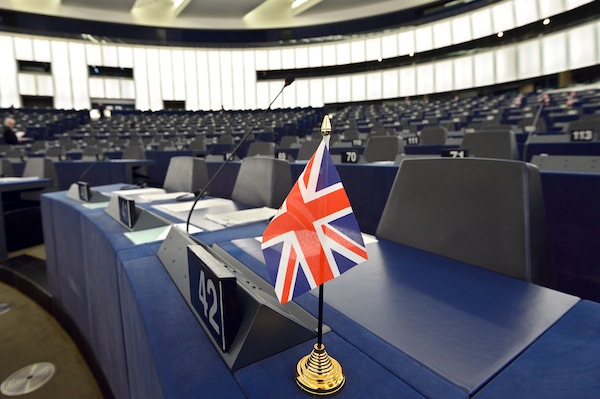It is perhaps the most striking failure of the EU that nearly 30 years since Margaret Thatcher signed the Single European Act with the vision of a single trading market by 1992, that in 2014 we do not yet have a genuine single market in the services sector. This profound failure has cost the EU billions in economic growth and disproportionately affects the UK, which has a huge service industry base.
The EU official website, with a delicious piece of understatement, comments:
‘Despite its achievements so far, the single market is not yet complete. Important gaps remain in some areas. Pieces of legislation are missing. And administrative obstacles and lacking enforcement leave the full potential of the Single Market unexploited.’
The cost of this failure is stark.
Services account for 71 per cent of EU GDP, but only 3.2 per cent of this is from intra-EU trade. The Department for Business, Innovation & Skills has estimated that the completion of the single market in services could increase EU GDP by 14 per cent over ten years. No small prize when forecast economic growth of the Eurozone is so bleak, languishing around 1.2 per cent . Yet little has been done by the Commission or the member states to resolve this glaring failure.
The Commission’s solution was of course a Directive. In an attempt to provide impetus to internal EU service business, the Services Directive was introduced and in fairness, if it was actually fully implemented by member states, it could provide a one-off 2.3 per cent boost to EU GDP. Further Introducing an effective ‘Country of Origin’ principle, which was removed when that Directive was negotiated, could provide an additional one-off boost of over 2 percent. This would tell people whose laws applied when they bought services, and states what barriers they could – or couldn’t – keep in place.
You may have thought that this would be have been seized upon given the precarious state of the eurozone economy. Well, unsurprisingly, think again.
Non-tariff and technical barriers remain significant obstacles, and the EU should be working to boost intra-European trade. In short the protectionist instincts of nation states kick in and ‘invisible barriers’ make doing business complicated. But if agreement cannot be reached at the level of the member states, the UK should be freed to lead a group of interested member states to pursue services liberalisation through enhanced co-operation. Those that can should be free to do so.
This week I shall be joining colleagues at the EU Fresh Start group who are exploring what appetite there is in the EU for genuine reform. I remain very sceptical that other EU states want to reform but it would be unreasonable not to make the case and test their sincerity. The EU failure to deliver a genuine single market in services should be the catalyst for that change and now is the time to see if they are hungry enough to do just that. The failure to do so would just re-affirm my view that we would be ‘better off out’.
Nick de Bois is the Member of Parliament for Enfield North






Comments